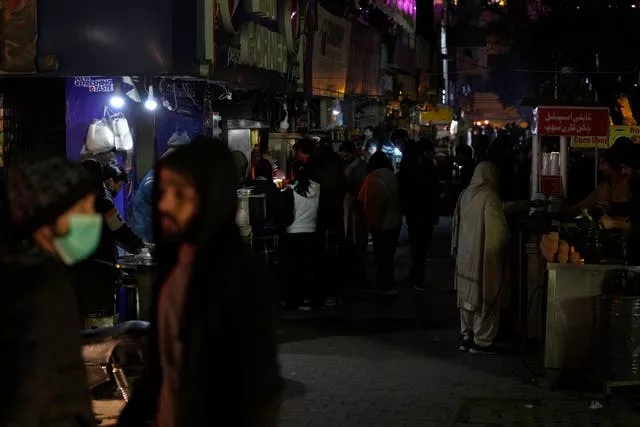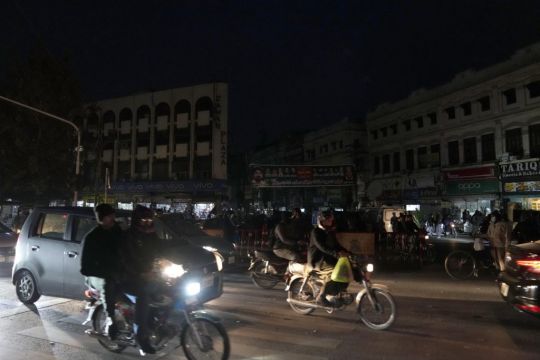Pakistan’s energy minister has defended the government following a major, day-long power cut that disrupted normal life across the country and drew criticism from millions who were left without electricity amid harsh winter weather.
Monday’s blackout engulfed schools, factories and shops, and many of the country’s 220 million population were left without drinking water as pumps powered by electricity also failed to work.
In key businesses and institutions, including main hospitals, military and government facilities, back-up generators kicked in.
Power was later mostly restored, though some parts of the country were still experiencing blackouts on Tuesday.

Pakistan's energy minister Khurram Dastgir offered no apologies for the collapse of the grid but praised the nation’s engineers and technicians for their efforts to boot up the system.
He also made no reference to the fact that an energy-saving measure by the government had backfired.
Authorities had turned off electricity during low-usage hours on Sunday night to conserve fuel, according to a government energy-saving plan. Efforts to turn power back on early on Monday morning led to a system-wide meltdown.
The minister said an investigation will show what exactly caused the blackout, which he blamed on a technical glitch.
“Today, at 5.15 in the morning, the power was fully restored,” Mr Dastgir told reporters in the capital, Islamabad.
He floated a “remote chance” that the outage was caused by hackers targeting the Pakistani grid’s systems and expressed faith that a three-member committee set up on Monday by the country's prime minister Shahbaz Sharif will get to the bottom of it.
“We will fully co-operate” with the committee, which is expected to complete a preliminary investigation within days, Mr Dastgir said.
He also warned that some may still face “routine power outages” this week as Pakistan’s two nuclear power plants and coal plants have yet to come fully online.

The power cut was reminiscent of a massive blackout in January 2021, attributed at the time to a technical fault in Pakistan’s power generation and distribution system.
Pakistan gets at least 60% of its electricity from fossil fuels, while nearly 27 per cent of the electricity is generated by hydropower. The contribution of nuclear and solar power to the nation’s grid is about 10 per cent.
Fawad Chaudhry, a senior leader at the opposition Pakistan Tehreek-e-Insaf party, on Monday criticised the government for mismanaging the country’s economy and said the power cut was a reflection of the government’s incompetence.
Pakistan, which is grappling with one of its worst economic crisis in recent years amid dwindling foreign exchange reserves, is currently in talks with the International Monetary Fund to soften some conditions on a $6 billion bailout.
Mr Sharif’s government says the harsh conditions will trigger further increases in inflation.
The IMF released the last crucial tranche of $1.1 billion to Islamabad in August but, since then, discussions between the two parties have oscillated due to Pakistan’s reluctance to impose new tax measures.







